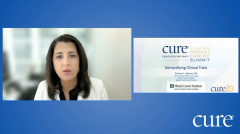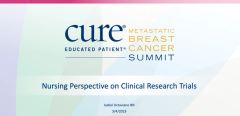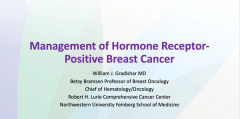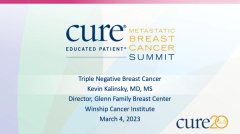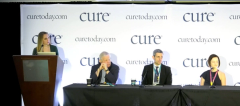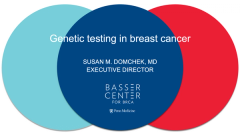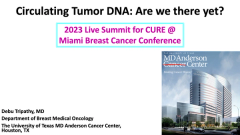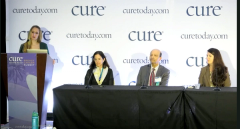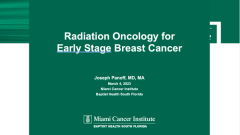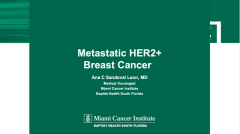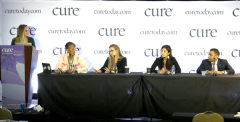
Educated Patient® Breast Cancer Summit at MBCC Triple-Negative Breast Cancer Treatment Presentation: March 4, 2023
Watch Dr. Kevin Kalisnky, from Winship Cancer Institute of Emory University, discuss treatment for triple-negative disease during the CURE Educated Patient® Breast Cancer Summit at MBCC.
Episodes in this series

Advances in treating triple-negative breast cancer have become possible thanks to clinical trials, and have resulted in patients living longer; however, more is need to also improve quality of life.
Dr. Kevin Kalisnky, director of the Glenn Family Breast Center at Winship Cancer Institute of Emory University in Atlanta, discussed treating triple-negative breast cancer further during CURE®’s Educated Patient® Breast Cancer Summit, held live and virtually at the Miami Breast Cancer Conference.
Triple-negative breast cancer accounts for about 20% of all breast cancer cases, Kalinsky said, and is defined by the absence of things such as the estrogen receptor, progestogen receptor and HER2 proteins.
The primary treatment for early stage 1 to 3 triple-negative breast cancer is chemotherapy. Patients with stage 2 to 3 disease can receive chemotherapy combined with an immunotherapy called Keytruda (pembrolizumab) prior to surgery, and then continue immunotherapy thereafter.
“(The immunotherapy) is given through the veins that tells the body to attack the cancer and this has been a major advance for patients with stage 2 and 3 breast cancer within the last few years,” he added.
The addition of immunotherapy has also been able to prevent recurrences. It is known, Kalinsky explained, that if a patient has some leftover disease at the time of surgery it can increase this risk of recurrence. However, research is now evaluating drugs that can possibly prevent that from happening.
“And so some of the drugs that we're seeing for patients with stage 4 breast cancer are being evaluated in that setting and I'm hopeful that that will help move the field forward to use those drugs in that setting to prevent recurrence, that would be a major advance,” he added.
For those whose disease has become metastatic (spread to other parts of the body), treatments include chemotherapy and an antibody drug conjugate. Kanlinsky explained that those agents work as a “GPS” and tell the chemotherapy where to go.
And for those with inherited mutations, such as BRCA, there are PARP inhibitors which are given to patients with high-risk early-stage breast cancer or those in metastatic disease.
And although these advances are great, they can also come with a downside, such as rare side effects with immunotherapy. These include thyroid dysfunction, inflammation in the lungs or colon — and although they are uncommon, they can still be serious, Kalinsky explained. And the challenge now is that those side effects cannot be predicted.
“And while we've made advances, we also hope for new targets and new drugs that we can have to treat our patients,” he said. “And so when we talk about this with patients, we're always excited to have new drugs to treat patients, but it's always also a balance between side effects and efficacy.”
Kalinsky noted that these advances have been made and will continue to grow because of clinical trials. And he encourages patients with triple-negative breast cancer to ask their provider if they qualify for a clinical trial — as it can not only benefit themselves, but also the future of treatment for triple-negative breast cancer.
“For patients with triple-negative breast cancer, I would say this is the subtype of breast cancer with the greatest unmet need,” he concluded. “And I would highly encourage any patient with triple-negative breast cancer whether you're being treated at a community center or at an academic institution, to always ask your treating doctor, “Are there any clinical trials that you think would be appropriate for me or are good for me?” Because that's really how we move the field forward. And that's how we will then establish the new standard of care, even within the next few years.”
For more news on cancer updates, research and education, don’t forget to


